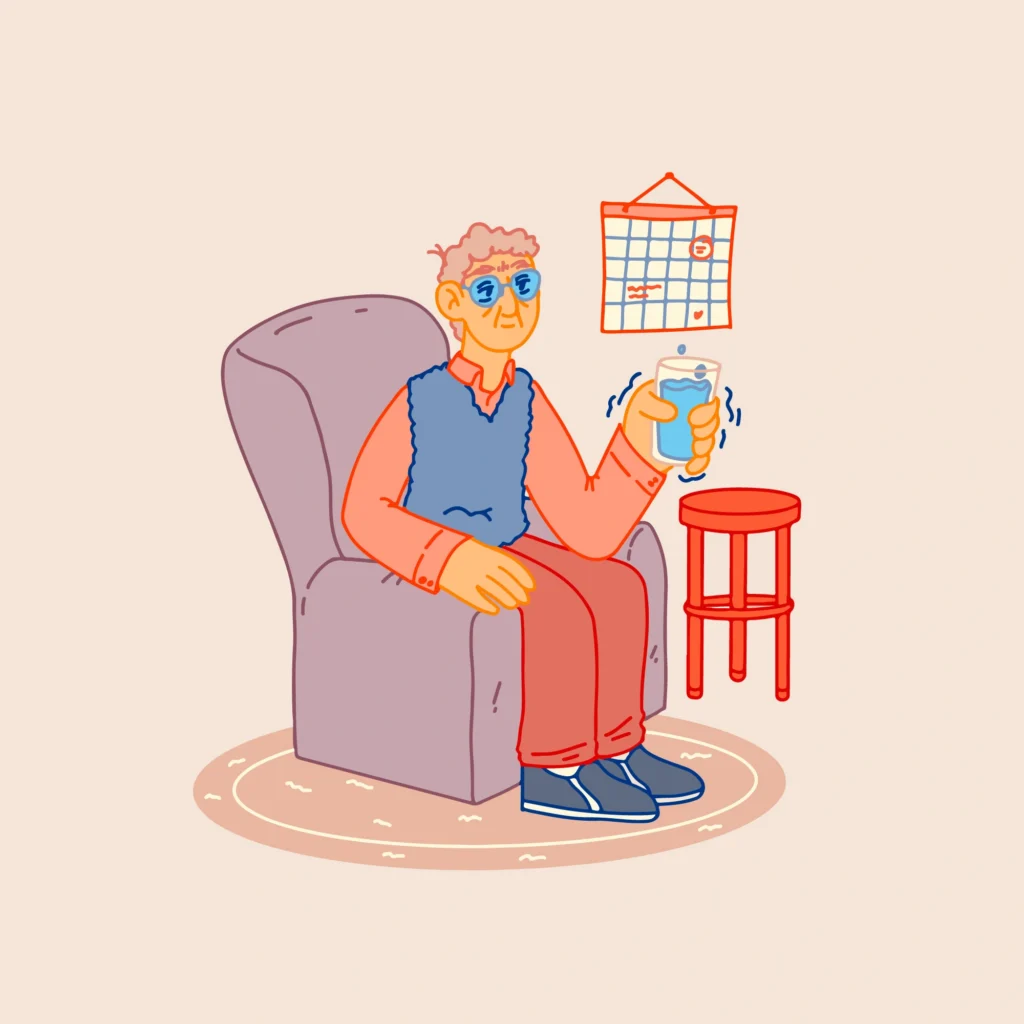Does Ayurveda really not have any side effects?

Does Ayurveda really not have any side effects?
- A young IT engineer having average weight but typically accumulated belly fat got diagnosed with fatty liver during annual check-up conducted by the company. He searched for Ayurvedic medicines for reducing fatty liver and started it for 3 months. He observed some metabolic disturbances along with overall moderate weight loss. He discontinued his treatment and consulted for proper Ayurvedic medicines.


Nowadays, the internet is flooded with lots of information including Ayurvedic medicines and its usage. Self-diagnosis and treatment are common trends amongst the young generation assuming that Ayurveda has no side effects. But rethink before taking any drug without consultation.
- A senior citizen having chronic constipation and anorectal fissures had advised with daily consumption of XYZ oil for relieving problems related to constipation by his friend. His problem got worsen after a few days of this kind of experimental treatment.

In Ayurveda, medicines given for every individual are very specific which are dependent on individual prakruti, type of disease etc. Taking the same medicines given by a doctor for a similar set of problems to another person is very dangerous and may affect health negativity.
So, rethink about side effects before consuming any kind of Ayurvedic medicines which are advised by friends/ relatives.
- An Ayurvedic consultant had prescribed ABC medicines for chronic cough and running nose for young, teen-age boy. His mother repeated this medicine for a long period of time in the month of October for similar complaints which caused acidity, mouth ulcers like problems in him.

Repeating the same Dosage of medicine without consultation is very common. As we discussed earlier, Ayurvedic medicines are very individual specific and designed very specifically considering season, type of weather, geographic conditions etc. Long term use or repeated Dosage of the same medicine at different weather conditions may cause side effects and can worsen the health problems.
Modern medical science is evolving very fast with inventions of new synthetic molecules for different types of diseases. With these inventions and pharmacological disruptions, we are facing a serious problem of drug related side effects.
Side effects are unwanted, undesirable effects that are possibly related to a drug. Side effects can vary from minor problems like nausea, acidity, headache to life-threatening events, such as a heart attack, liver or kidney damage. Adverse drug reactions (ADRs) and side effects are both unintended responses to a medication. But ADRs are harmful and more unexpected than side effects. Side effects are more predictable than ADRs.
The biggest problem with modern medicines is their side effects, they might cure your ailment, but they more often than not, leave you with another one, resulting in the Doctor prescribing you another drug to reduce the side effect. This can sometimes become a vicious cycle.
To avoid prolonged side effects of drugs particularly used in management of lifestyle disorders, people are intended to prefer Ayurveda assuming that the treatment approach mentioned by Ayurveda is holistic, herb based and will not have any side effects.
Contrary to this, any medication can have an adverse effect or side effect if it is taken wrongly without knowing its pharmacological action.
Ayurvedic drugs too have side effects but relatively with less long-term impact. Also, the principles of Ayurveda come with holistic approaches which make synergic action within the different body systems which again boosts overall functioning of the body. Treatment given for a particular system of the body always creates a positive effect on another system of the body including physical and mental parameters. It never hampers functioning of another system unlike modern medicine.
This is a very unique advantage of Ayurvedic treatment. Ayurveda believes in holistic healing and also emphasizes on lifestyle modification for avoiding recurrence and maintaining harmony which also reduces side effects caused by particular drugs.

Considering these principles of Ayurvedic treatment, we can summarize that Ayurveda too has side effects which are mainly for a short period of time with less intensity. The main side effects due to Ayurvedic drugs are acidity, heartburn, diarrhoea etc which are for a short period of time. The medicines used for repairing a particular system will not have a negative impact on another system of the body.
There are some adverse drug reactions associated with Ayurvedic drugs because many times, Ayurvedic medicine contains poisonous herbs like Aconitum ferox, minerals etc.
Classical textbook of Ayurveda i.e. Charak Samhita says, “that even a strong poison can become an excellent medicine if administered properly. On the other hand, even the most useful drug can act like a poison if handled carelessly”.
The Charaka Samhita, which is a classic textbook of Ayurveda, describes all the adverse reactions to medicines when they are prepared or used inappropriately.
Ayurvedic Medicines may produce side effects or inappropriate effects in following scenarios
1. Improper method of preparation of Ayurvedic drugs-

Ayurvedic texts provide thorough guidelines about the process of particular drug formation. From the selection of raw material up to storage of drugs, everything is well mentioned in Ayurveda. If these procedures are not followed, drugs definitely can give side effects and also be responsible for not showing apt results.
Implementing standardized procedures for collection, storage, and processes of raw material is very important for avoiding adverse reactions.
There is always buzz about Ayurvedic Herbo mineral formulations leading to kidney failure, liver impairment. The most un addressed reason behind this is improper method of preparations. Nowadays with standardized pharmacy rules and Licensing, the scenario has been changing.
2. Improper administration of drug –

Pharmacokinetics and pharmacodynamics of every drug is different. Ayurveda always focuses on pharmacodynamics of drugs, considering individual prakruti, sarata, doshsthiti, etc.
Charaka samhita also describes, elegantly, several host-related factors to be considered when selecting medicines in order to minimize adverse reactions and side effects like the constitution of the patient (prakriti), age (vayam), disease (vikruti), tolerance, previous exposure (satmya), psychological state (satwa), digestive capacity (ahara-shakti), capacity for exercise (vyayama shakti), quality of tissues (Sara), physical proportions of the body (sahanan) and strength (bala).
This individual specific personalized approach of medicine is very unique in Ayurveda. Due to this, same drug may show different pharmacodynamics in different patient
So, in Ayurveda, side effects, its intensity and reflection time associated with drugs are also different in each and every individual.
3. Safety measures and precautions while taking Ayurvedic Medicines –

Several measures can be taken to minimize the risk of experiencing side effects from Ayurveda medicine.
- Consulting with a qualified Ayurvedic practitioner before starting any treatment
- Informing your doctor of any current medications or health conditions.
- Thorough history of diet, lifestyle is also important. Identifying prakruti, type of work, associated occupational hazards are very important for Ayurvedic practitioners before starting proper treatment.
- Using only high-quality, approved products from reputable sources
- Complying with dosage recommendations and instructions from qualified practitioners.
- Avoiding self-medication and seeking professional guidance whenever necessary.
In the era of superfast life, we all wanted to have disease free life and fast cure for all medical problems. Over the years there has been a paradigm shift in the medicines but with this fast shift we are facing serious problems related to side effects of medicine. Understanding the methods to tackle these side effects are very necessary.
Ayurveda comes with the approach of minimizing side effects by proper drug administration either by complementing the drug with Anupan or specific times of drug administration.
Several other factors are also associated with side effects which determine intensity of side effects. These factors are use of other drugs, type of diet, other underlying diseases or conditions (for example, diseases that weaken the immune system or affect the function of the kidneys or liver).
Ayurvedic remedies have been used for centuries to treat various ailments, but they come with potential side effects that one must be aware of before using them.
It is important to note that not all Ayurvedic remedies come with side effects, but it is essential to be cautious and informed before taking Ayurvedic treatment.


